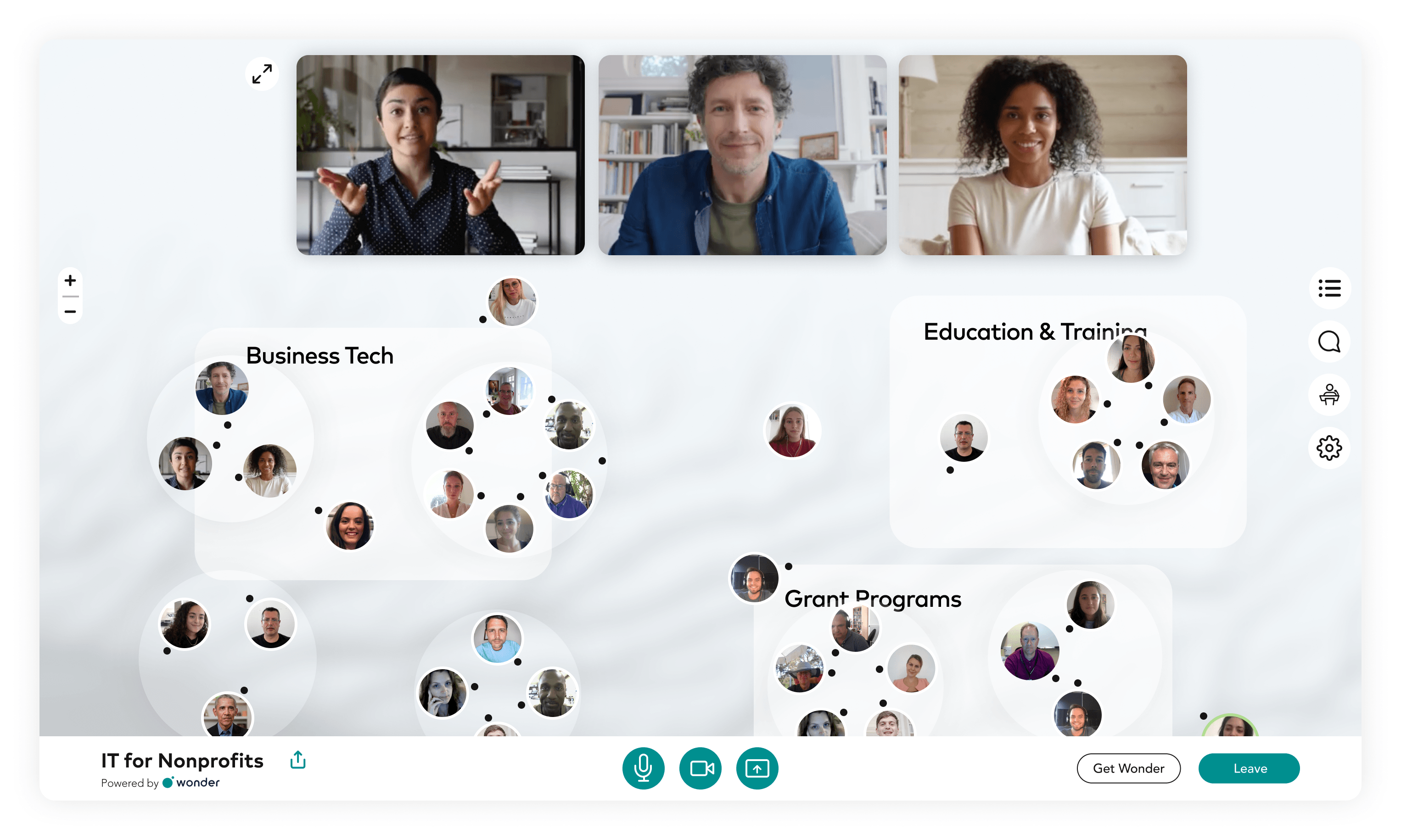Exclusive: Berlin, Germany-based Wonder (previously known as Yotribe) is today making its public debut with the outing of its Web-based group gathering and conferencing platform, and the disclosure of a $1.2 million seed funding round from BlueYard and angel investors.
Already used by some 10,000 active users and organisations from all over the world - including universities like Oxford, Harvard as well as startups, 'various government ministries', schools and churches during its beta phase, Wonder allows users to navigate a 2D space with an avatar to join in online group conversations or events, in a way that aims to mimic real life social dynamics.
Wonder says that, unlike your typical video conferencing and online event tool, its platform is focused on natural and ad-hoc interactions, enabling any user to create a video portal (with chat and screen-share functionality) by moving close to any other user on the platform. Organisers get extra features such as privacy management and a so-called 'broadcast mode'.
Wonder is based on a problem that co-founder Leonard Witteler says he had been thinking about for over five years:
"You can't truly meet effectively online in groups. Once you add more than 5-6 people, everything that makes social interaction beautiful gets lost: the spontaneity, the intimacy, the energy. The reason for that is that virtual conferencing does not work in the way that human group psychology works. In larger groups, humans almost always break into smaller groups and move between those. Settings where everyone faces everyone in a large group are the exception, yet all video conferencing apps use that paradigm. This is an old problem, but through shifts in technology and social norms, it has suddenly become solvable."
Wonder doesn't see itself primarily as a virtual events app, in the sense that it focuses on the social interactions part first and foremost, and then gradually adds features that allow you people to run workshops, host conferences etc.
Witteler says: "If you don't fix the social interaction first, you end up with a product that ticks all the boxes but that misses the real reason why people get together in the first place. We think that this explains Wonder’s broad appeal."
It's definitely an interesting problem to address, and one that the likes of Hopin, Zoom, Run The World, Brella, EventCube etc. will no doubt be following with lots of interest.



Would you like to write the first comment?
Login to post comments